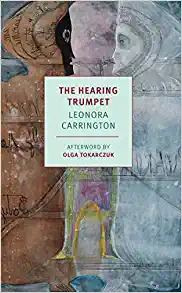
Ferdydurke (paperback)
:This masterpiece of European modernism was first published in 1937, and so arrived on the literary scene at an inopportune moment. First the Second World War, then Russian domination of Gombrowicz’s Poland and the author’s decades of exile in Argentina all but expunged public awareness of a novel that remains a singularly strange exploration of identity, cultural and political mores, and eros. Joey Kowalski narrates the story of his transformation from a 30-year-old man into a teenage boy. Joey awakens one morning gripped by fear when he perceives a ghost of himself standing in the corner of his room. He orders the ghost, whose face “was all someone else’sAand yet it was I,” to leave. When the ghost is gone, Kowalski is driven to write, to create his own “oeuvre,” to be “free to expound [his] own views.” A visitor arrives, a doctor of philosophy named Pimko. As Pimko talks to him, Kowalski begins to shrink, to become “a little persona”; his oeuvre becomes a “little oeuvre.” Pimko, in turn, grows larger and larger. He takes Kowalski to an old-fashioned Polish school, and then the man-boy’s adventures adventures continue in a middle-class household and on the country estate of landed aristocrats. Kowalski’s exploits are comic and erotic (for this is a modernism closer to dada and the Marx brothers than to the elevated tones of T.S. Eliot or Ezra Pound), but also carry a shrewdly subtle groundswell of philosophical seriousness. Gombrowicz is interested in identity and the way time and circumstance, history and place impose form on people’s lives. Unsentimental, mocking and sometimes brutal, Kowalski’s youthfulness is callow and immature, but it is also free to revel in desire. Susan Sontag ushers this new translation into print with a strong and useful foreword, calling Gombrowicz’s tale “extravagant, brilliant, disturbing, brave, funny… wonderful.” And it is. (Oct.) — Publishers Weekly
“Gombrowicz is interested in identity and the way time and circumstance, history and place impose form on people’s lives. The book itself is a parody of common literary forms in prewar Polish literature – an introspective, almost Proustian monologue transitions into a schoolboy memoir, then abruptly becomes a story of intergenerational struggle before finishing up as a “socially conscious” tale of life in a country manor. At each transition point there is a general brawl, a moment of escape, followed by a descent back into rigid form. Gombrowicz weaves into the book his theme that immaturity is the force behind our creative endeavors, but he’s also clear that there’s no getting away from this relentless, normalizing force.
Gombrowicz himself wrote of his novel that it is not “… a satire on some social class, nor a nihilistic attack on culture… We live in an era of violent changes, of accelerated development, in which settled forms are breaking under life’s pressure… The need to find a form for what is yet immature, uncrystalized and underdeveloped, as well as the groan at the impossibility of such a postulate — this is the chief excitement of my book.” — wikipedia
$ 16.00
Out of stock

